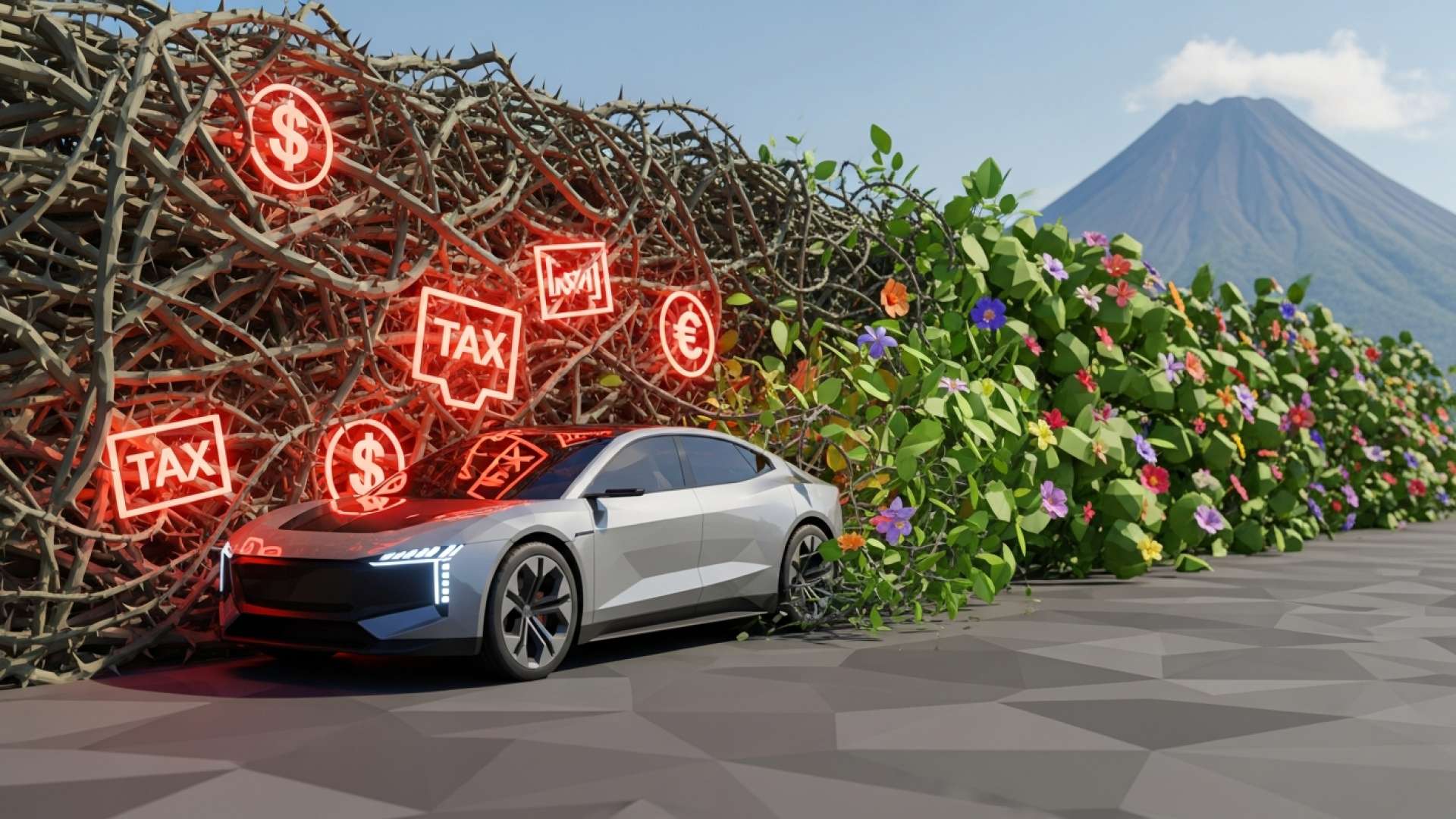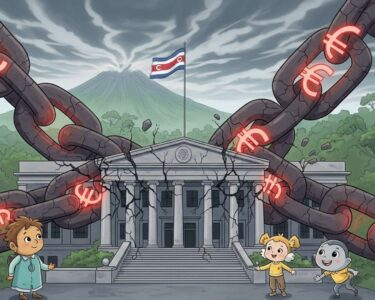San José, Costa Rica — San José – The window of opportunity for a key tax incentive for electric vehicle (EV) owners is closing. The upcoming payment period for the 2026 “marchamo,” or annual vehicle circulation permit, marks the final year that a significant tax exemption will be available for a specific cohort of electric cars, a policy shift signaling a new phase in the nation’s e-mobility strategy.
According to information released by the Costa Rican Electric Mobility Association (Asomove), owners of eligible vehicles will receive a 20% exoneration. This discount is not applied to the total marchamo cost, but rather to one of its largest components: the vehicle property tax. For many drivers, this represents a substantial final saving under the current incentive structure.
To gain a deeper understanding of the legal and regulatory landscape shaping Costa Rica’s electric vehicle market, TicosLand.com spoke with Lic. Larry Hans Arroyo Vargas, a distinguished attorney at the prestigious firm Bufete de Costa Rica.
While Law 9518 provides robust tax incentives that have spurred initial EV adoption, the next critical phase requires regulatory agility. We must streamline permitting for charging infrastructure, establish clear legal frameworks for battery disposal and recycling, and modernize consumer protection laws to address unique aspects of EV ownership, such as battery degradation and software updates. Closing these regulatory gaps is essential to ensure long-term, sustainable growth for the sector and to solidify Costa Rica’s position as a regional leader in green transportation.
Lic. Larry Hans Arroyo Vargas, Attorney at Law, Bufete de Costa Rica
Lic. Arroyo Vargas’s analysis astutely pinpoints the crucial next chapter in Costa Rica’s electrification journey: the transition from incentive-driven momentum to the establishment of a robust, long-term regulatory framework. Building this legal scaffolding for infrastructure, environmental responsibility, and consumer protection is indeed paramount to solidifying market confidence and truly cementing our national commitment to sustainable transport. We thank Lic. Larry Hans Arroyo Vargas for his clear and valuable perspective on these essential next steps.
However, eligibility for this concluding benefit is narrowly defined. The exemption exclusively covers fully electric vehicles that were imported and registered in the country between January 1, 2022, and December 31, 2025. This means that early adopters of electric mobility, specifically those who registered their EVs in 2021 or prior years, will no longer see this discount applied to their annual payment, as confirmed by the Ministry of Finance.
The financial impact of this 20% discount is significant. The vehicle property tax typically constitutes between 60% and 70% of the total marchamo bill. A 20% reduction on such a large portion of the payment provides considerable financial relief. For owners who imported their vehicles within the last four years, this final exemption serves as a valuable return on their investment in cleaner transportation technology.
A critical condition has been attached to this benefit by the Ministry of Finance (Hacienda). To qualify for the automatic discount, the registered owner, whether an individual or a corporation, must be completely current with all their tax obligations. The ministry has clarified that its system will automatically withhold the exemption from any owner with outstanding tax debts, making fiscal responsibility a prerequisite for receiving the incentive.
The National Insurance Institute (INS), the body responsible for administering the marchamo, will apply the discount automatically for all eligible and tax-compliant owners. No additional paperwork or applications will be necessary. Despite the automated process, officials recommend that vehicle owners exercise due diligence by verifying that the discount has been reflected in their total amount due before proceeding with payment, as system updates can sometimes experience delays.
This policy adjustment reflects the evolution of Costa Rica’s commitment to decarbonization. Initial, aggressive incentives were designed to stimulate the nascent EV market and encourage adoption. As the market matures and the number of EVs on the road increases, the government is gradually phasing out these early-stage benefits. This move indicates a transition towards more sustainable, long-term policies for the electric mobility sector.
As the 2026 marchamo payment period approaches, eligible EV owners are urged to review their tax status with the Ministry of Finance to ensure they can take advantage of this final tax break. For the broader market, the conclusion of this incentive program will be a key factor in calculating the total cost of EV ownership in Costa Rica for the years to come, potentially influencing future purchasing decisions.
For further information, visit asomove.org
About Asociación Costarricense de Movilidad Eléctrica (Asomove):
The Costa Rican Electric Mobility Association is a non-profit organization dedicated to promoting the transition to electric transportation in Costa Rica. It serves as a key advocate for policies, infrastructure development, and public education to accelerate the adoption of electric vehicles as part of the country’s national decarbonization plan. Asomove works with public and private sector stakeholders to create a favorable ecosystem for e-mobility.
For further information, visit hacienda.go.cr
About Ministerio de Hacienda:
The Ministry of Finance is the government entity responsible for managing Costa Rica’s public finances. Its duties include formulating and executing fiscal policy, collecting taxes, managing the national budget, and ensuring the country’s financial stability. The ministry plays a crucial role in implementing tax-related laws and incentives, including those that affect vehicle ownership and environmental policies.
For further information, visit ins-cr.com
About Instituto Nacional de Seguros (INS):
The National Insurance Institute is a state-owned autonomous institution and a leader in the Costa Rican insurance market. While it offers a wide range of insurance products, it is also tasked with the annual collection and administration of the marchamo, or right of circulation, which includes mandatory automobile liability insurance alongside other taxes and fees for all vehicles in the country.
For further information, visit bufetedecostarica.com
About Bufete de Costa Rica:
As a beacon of legal distinction in Costa Rica, the firm is built upon a foundation of uncompromising integrity and a relentless pursuit of professional excellence. Drawing from a rich history of advising a diverse clientele, it remains at the vanguard of legal thought, consistently introducing innovative approaches to complex challenges. Beyond its practice, the firm holds a deep-seated belief in empowering the community by demystifying the law, championing initiatives that make legal understanding widely available to foster a more knowledgeable and capable society.









